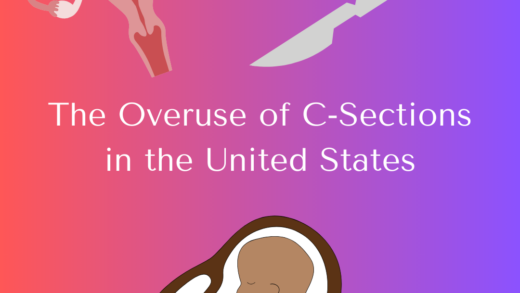Summary
There are no international regulations for surrogacy as such when different state jurisdictions conflict, children born from surrogacy are often less stateless and unable to return home with their intended parents.



Details
Stateless Children – Lack of International Regulations for Surrogacy – Transcript
My name is Elena Mierke and today we’re going to be talking about surrogacy, specifically international regulations of surrogacy, and why they need to change.
So what is surrogacy? Why is it controversial? And why do we care about international regulations specifically?
Well, let’s start from the top. There are two main types of surrogacy, traditional surrogacy, which involves the intended parent sperm and the surrogates egg (Baer). And gestational surrogacy, in which an embryo consisting of the intended parent sperm and egg, is implanted in surrogate. In both cases, the surrogate carries out the pregnancy and births the child (Baer).
Now, why would surrogacy be controversial? Well, the controversy is pretty evident in different states of regulations. Take Germany and France, for example. There, surrogacy is completely outlawed, as they believe that it commodifies a woman’s body and exploits her. and that’s a pretty strong belief of theirs (Fenton-Glynn).
Others, completely disagree. Ukraine, Russia, California, Surrogacy is completely legal, and as they believe, it’s an expression of a woman’s free will and autonomy to have the option of choosing to become a surrogate (Fenton-Glynn). To outlaw that would be to take away a woman’s autonomy over her own body(Fenton-Glynn).
So if it’s already a pretty complicated topic, why would looking at it through an international lens make it more complex?
Well, let’s talk about a concept called surrogacy tourism. A while back, think around the early 2000s, intended parents from countries where surrogacy was outlawed or more strictly regulated like France or the UK would flock to India, Thailand, Nepal, and Cambodia as they had either no regulations or very, very loose regulations on surrogacy. This so-called surrogacy tourism happened at such rates that the states shut down surrogacy clinics for foreigners over the concerns of exploitation of their citizens (Fenton-Glynn).
All that did was switch the tourism destination. at the moment surrogacy tourism centers in Laos Kenya and Nigeria where there are no or little regulations over surrogacy (Fenton-Glynn).
Now let me tell you a story about a pair of twin boys. They were born in India from the sperm of a German intended father and the egg of an Indian surrogate. They were born healthy and happy, and it seems like the perfect situation, but when the intended parents tried to return home to Germany the twins, the German authorities refused to issue a passport or visa for the babies, as under German law, surrogate arrangements are prohibited, meaning that the recognition of parenthood through surrogate birth is also not permitted (Fenton-Glynn ).
The German authority recommended that the parents attempt to get the twins Indian passports, but under Indian law, at the time this was before surrogacy for foreigners was outlawed in India (Fenton-Glynn).. Thus intended parents were recognized as the legal parents upon birth, so, as the twins were born to a surrogate mother, and the intended parents were not Indian, the Indian authorities stated that the twins were not entitled to Indian citizenship, and it took two years of litigation, two years in which the twins were stateless (Fenton-Glynn). They had no citizenship to any country, no documentation to any country, for the Indian government to grant identification papers and the German government to make a one time exception to issue twins visas (Fenton-Glynn #).
That’s a long time for children to not have the protection of any state.
Now, let me tell you a story about some twins. British parents traveled to Ukraine for commercial surrogacy as in the UK only altruistic surrogacy is allowed, meaning that the intended parents can only compensate the surrogate for pregnancy and birth related expenses (Fenton-Glynn). Their surrogate birthed a healthy and happy pair of twins, which seems like the perfect scenario right? Well, under English law, the legal parents of the child are surrogate mother and husband and they must undergo a lengthy legal process to transfer parenthood to the intended parents but as the surrogate mother and her husband were Ukrainian citizens that was not possible (Fenton-Glynn). So passports were refused for twins, because under those laws they are not British citizens and embassy encouraged the parents to seek Ukrainian passports, but in Ukraine, the commissioning parents are the legal parents, and there is no acknowledgment of the surrogate mother or the fact of surrogate birth on the birth certificate, so the twins were left stateless, and they could not return to the UK (Fenton-Glynn). They were in the care of a nanny for three months when the parents had to return to the UK. until the UK border agency had to agree to let them enter outside of immigration rules (Fenton-Glynn).
Now, the two stories I shared, though troubling, eventually ended happily. The children went home with their parents, and they were awarded full government protections. Unfortunately, those are only two of the two of the few that got media attention and allowances by the government. There are countless more, where the children and parents weren’t so lucky,
So what can we do about this?
Well, it’s unlikely that the domestic laws will ever agree. The people who either allow or disallow it do so because they believe they’re either protecting women from exploitation or they’re allowing women autonomy and free rights. Those are both really strong opinions and not ones that are likely to bend.
So, while alternative be, well, it’s possible as UN special rapporteur on the sale and sexual exploitation of children, Maud de Boer-Buquicchio states that “regulations based on human rights principles are essential to inform national authorities as they grapple with the challenges raised by surrogacy” (Hall). So even if there isn’t agreement on the state to state basis, due the the differences of cultural values and norms, there is the possibility for international regulations or an international precedent to be set for when these laws conflict and these jurisdictions conflict, so these children have a path forward, have a path to some sort of citizenship, some sort of belonging to a state.
And it is quite necessary. After all, nobody wants to see babies left stateless.
Works Cited
Baer, Judith A., editor. Historical and Multicultural Encyclopedia of Women’s Reproductive Rights in the United States. Bloomsbury Academic, 2002. ebook central, https://ebookcentral.proquest.com/lib/smith/reader.action?docID=3000917&ppg=1. Accessed 1 December 2024.
Fenton-Glynn, Claire. “International Surrogacy before the European Court of Human Rights.” Journal of Private International Law, vol. 13, no. 3, 2018, pp. 546-567. Taylor and Francis online, https://www.tandfonline.com/doi/full/10.1080/17441048.2017.1385901.
Fenton-Glynn, Claire. “Surrogacy: Why the world needs rules for ‘selling’ babies.” BBC, 25 4 2019, https://ebookcentral.proquest.com/lib/smith/reader.action?docID=3000917&ppg=1.
Hall, Dorian. “Children risk being “commodities” as surrogacy spreads, UN rights expert warn.” United Nations Human Rights, United Nations, 06 3 2018, https://www.ohchr.org/en/press-releases/2018/03/children-risk-being-commodities-surrogacy-spreads-un-rights-expert-warns?LangID=E&NewsID=22763.


